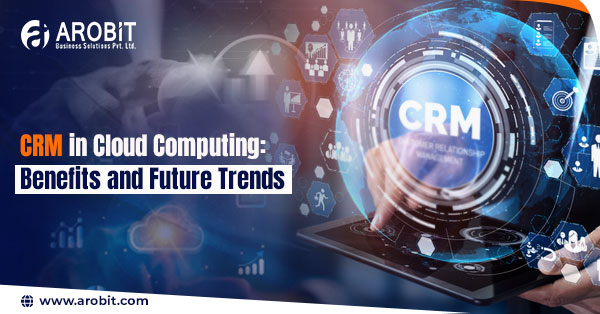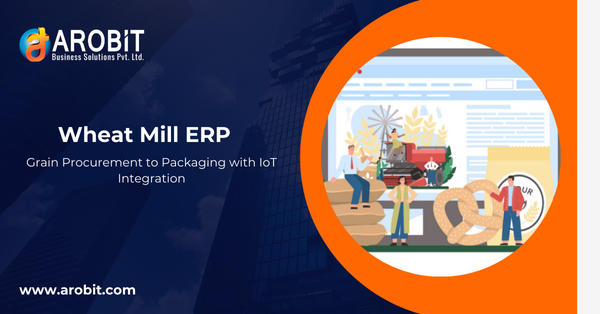Customer Relationship Management (CRM) has emerged as a vital tool for companies that are looking to evolve in handling their customers and increasing productivity. As of 2025, the global CRM market is expected to be around $128 billion, which shows immense growth and represents an exponential upward trajectory in terms of rising demand for proper management solutions for customers. In India, the adoption of CRM software is on the rise.
More startups and small businesses are slowly realizing the importance of managing customer relationships efficiently. This has been revolutionized since integrating it with cloud computing has revolutionized how businesses function. With this cloud technology, any organization can access its CRM software from anywhere. This way, sales teams and customer service representatives will always be able to work with up-to-date information. This article explores the objectives of customer relationship management in cloud computing, key features, benefits, and future trends shaping the landscape of CRM.
Understanding Cloud CRM
Definition of Cloud CRM: Cloud-based CRM means the system is operated on the internet, instead of being stored on local servers. The advantage of this is that customers can easily log in to their way of reaching data from the internet. Business organizations using cloud-based solutions are exempted from the intricacies of maintaining physical servers and infrastructure.
Evolution from Traditional Systems: Traditional on-premise CRM systems involve huge hardware investment and IT infrastructure. This often resulted in heavy maintenance costs. On the other hand, cloud-based CRM solutions have emerged as low-cost alternatives for being flexible and scalable. Businesses can now concentrate more on their core activities instead of managing IT resources.
Key Differences Between On-Premise and Cloud-Based CRM Solutions
Feature | On-Premise CRM | Cloud-Based CRM |
Cost | High upfront costs | Subscription-based pricing |
Maintenance | Needs dedicated IT support | Managed by the service provider |
Accessibility | Local network only | Accessible through any internet-enabled device |
Scalability | Difficult to scale | Easily scalable based on the need |
Examples of Most Popular Cloud-based CRM Platforms
- Salesforce: A leader in cloud-based CRM solutions with extensive features and customization.
- Zoho CRM: Provides the world's most comprehensive suite for managing customer relationships at very competitive pricing.
- HubSpot: Free and paid versions of its CRM software that make it accessible to small businesses.
- Best CRM Software in India : Brands such as Freshworks and Kapture are gaining popularity among Indian organizations for their customized solutions.
Objectives of Customer Relationship Management in Cloud Computing
The key objectives of deploying a cloud CRM include:
Customer Experience
- Deliver better insights-driven interactions and support through data.
- Make the best use of customer information to customize marketing strategies, thereby enhancing the service to customers.
- It delivers loyalty-building customer journeys that ultimately help in long-term relationships.
Operations
- Automation for efficiency across departments.
- Implementation of workflows that eliminate or minimize manual errors and save time.
- Ensuring information availability to all teams when needed.
Data Management
- Consolidating customer data for deeper insights and effective decision-making.
- Ensuring that the customer information is accessible in real-time to all teams.
- Creating real-time collaboration among the sales, marketing, and support teams.
Scalability
- Adapting to expansion and market shifts with minimal investment.
- Flexible plans that can expand as the business plan changes.
- Cloud CRM lets organizations easily add or delete users according to their needs.
Core Features of Cloud CRM
Several essential features make the functionality of cloud-based solutions for CRM rich:
Accessibility
- One can access data anywhere via an internet connection, which is why remote work and collaboration are also possible.
- Mobile applications allow team members to manage their customer relationships on the go.
Possibilities of Integration
- Cloud CRMs can easily and seamlessly integrate with other business tools and applications such as email marketing software, accounting software, and others.
- This integration ensures that data from all the different modules is stored in one place, thereby creating a single source of truth.
Real-Time Updates
- Gives all teams an up-to-date view across departments to ensure efficient communication and coordination.
- Instant notifications about customer interactions allow teams to quickly respond to incoming inquiries.
Security Measures
- Protecting sensitive customer data in the cloud through encryption and robust security protocols.
- Regular backups mitigate the risk of losing data permanently due to technical accidents or issues.
Benefits of Cloud CRM
The advantages of adopting a cloud-based CRM system are numerous:
Cost Efficiency
- Reduced hardware costs associated with on-premise systems.
- Subscription-based pricing models allow businesses to pay only for what they use.
Flexibility and Mobility
- Enables people to work from any device and receive access to the system.
- Helps teams collaborate regardless of location.
High-Speed Deployment
- Setting up is fast and requires minimal IT infrastructure.
- Businesses can begin using the system almost immediately.
Incorporating new features into the system won't require much interruption to ongoing processes.
Successful Implementation of Cloud CRM
To implement a cloud-based CRM system successfully, consider the following step-by-step guide:
- Assess the Business Needs: Given the business size, industry, and objectives, define specific requirements.
- Select the Right Provider: Compare features, pricing, and user reviews for cloud CRM vendors.
- Involve Stakeholders: Have team members be part of the process toward a smooth transition.
- Training: Train users thoroughly about the new system to derive the greatest benefit.
- Data Migration: Develop a plan to safely migrate existing customer data without loss or corruption.
Future of CRM in Cloud Computing
Since technology is constantly evolving, trends shaping future CRM through cloud computing are as follows:
- Artificial Intelligence (AI): AI will be critical in streamlining customer interactions based on predictive analytics and personalized recommendations.
- This technology will automatically enable CRMs to learn from past interactions, thereby enhancing customer service.
- Automation will increase further and accelerate the streamlining of processes by allowing the right team members to focus on strategies instead of being consumed by mundane tasks.
- Social media data integration into CRMs will provide a better understanding of customer behaviour. Improved mobile capabilities will be used to effectively manage sales relationships on the go.
- Predictive analytics will empower businesses to anticipate customer needs based on historical data, leading to improved engagement strategies and higher conversion rates.
Custom CRM Development
For businesses with unique requirements, engaging a custom CRM development company can provide tailored solutions that align with specific operational needs. These companies offer services such as:
- Custom CRM Development Services: Creating bespoke systems designed specifically for an organization’s workflow.
- Integration with existing tools ensures seamless operation across platforms. Engaging a credible CRM software development company leads to optimized functionality that serves your business goals and ensures scalability whenever business needs change.
FAQs
Q1. What is cloud-based CRM?
Cloud-based CRM is an application that is hosted on remote servers and can be accessed through the Internet as opposed to client-server-based local installation. This facilitates an organization in managing customer relationships without high levels of initial investment as characterized by typical systems.
Q2. How does cloud CRM differ from traditional CRM?
The major distinction is found in how they are hosted. Typically, local servers require an internal IT team to maintain them, whereas cloud-based CRMs are maintained by service providers who handle updates, security, and infrastructure.
Q3. What are some benefits of using cloud-based CRM?
Benefits include cost reduction, accessibility from any device with internet connectivity, automatic updates, enhanced security measures, scalability according to business needs, and improved collaboration among teams.
Q4. Can I customize my cloud-based CRM?
Yes! Many cloud CRMs offer customization options or can be developed specifically for your business needs through custom CRM software development services provided by specialized companies.
Q5. What is a "CRM machine"?
A "CRM machine" is an automated process that helps cloud-based CRMs assist a company in managing customer interactions efficiently. A "CRM machine" is seen in automated follow-up processes, lead scoring, and data analysis provided by the system, making it a well-oiled machine that streamlines operations and enhances productivity.
Q6. How does system management work in cloud-based CRMs?
Cloud-based CRMs greatly add to system management since they can easily be aligned with other business applications. Such integration helps ensure that all departments have consistent and current information without over-reliance on IT for maintenance or updates.
Q7.What should I look for when choosing a cloud-based CRM?
Ease of use, ability to use with other existing tools, options to scale, security features availability, customer support availability, as well as pricing models should feature while making a choice.
Conclusion
The prominence of cloud computing in contemporary CRM practices cannot be overstated. Cloud-based solutions can enhance customer relationships while streamlining operations in business functions. As more organizations adopt these technologies, identifying goals and trends for the future will be important to realize their full benefit. Investment in custom-designed CRM development specific to business needs can be very effective in maximizing results.
Companies looking for reliable partners should consider engaging with a reputable custom CRM development company or a dedicated CRM software development company that offers comprehensive services tailored to unique requirements. In summary, embracing cloud computing for CRM not only provides immediate advantages but also positions businesses favourably for future growth in an increasingly digital landscape.








